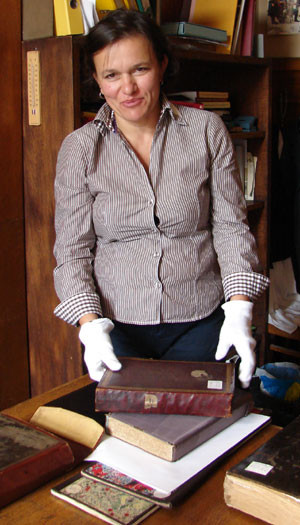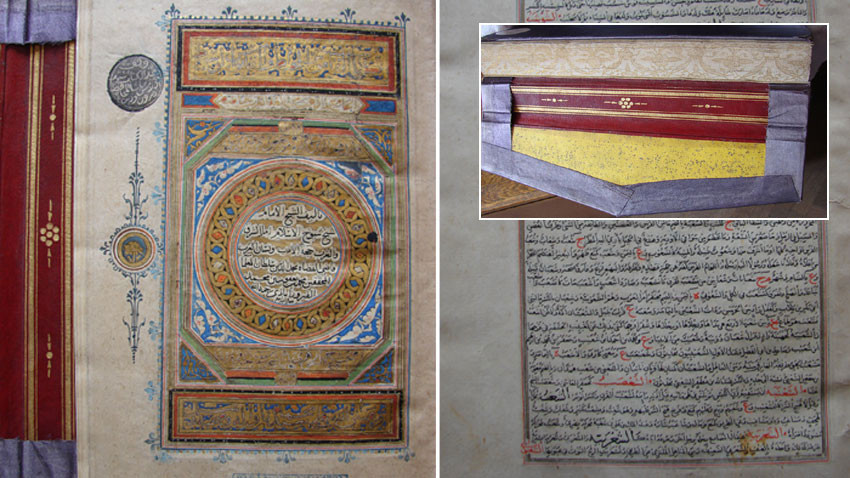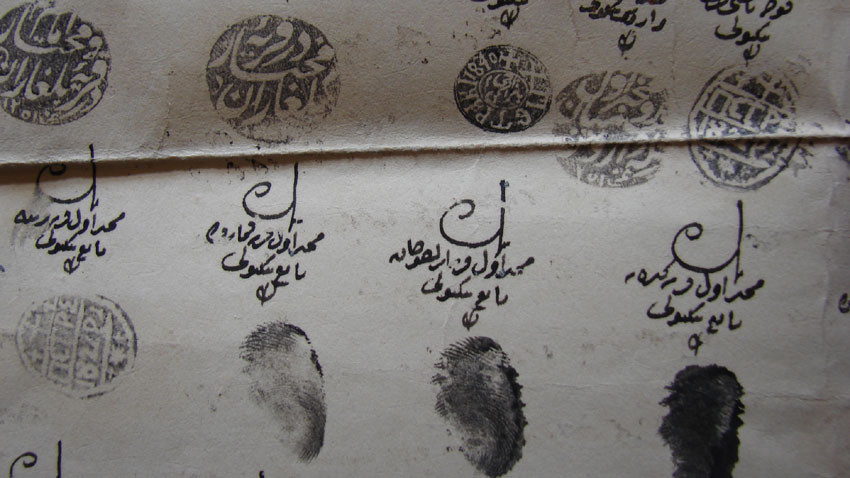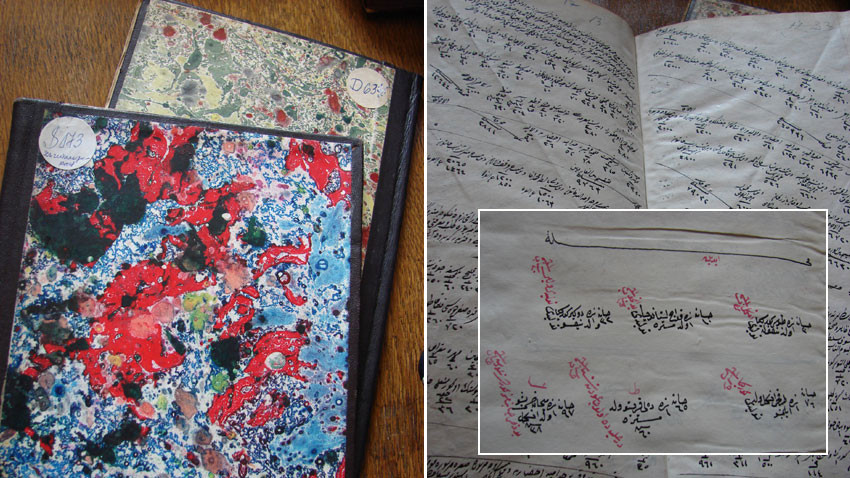Among the treasures owned by Bulgaria is the Ottoman archive, kept in the funds of the Sts. Cyril and Methodius National Library. Its foundations were laid with the opening of the library - the first cultural institution created after the Liberation of Bulgaria, 140 years ago. In 1909, with a decree by Tsar Ferdinand, the Oriental Department was formally established.
 The aim of the archive study is to highlight the past of the Bulgarian people within the borders of the Ottoman Empire, says Milena Zvancharova - one of the six employees who are taking care of this wealth today:
The aim of the archive study is to highlight the past of the Bulgarian people within the borders of the Ottoman Empire, says Milena Zvancharova - one of the six employees who are taking care of this wealth today:
"The idea behindcreating the archive was to concentrate all the Arabographic literature accumulated in Bulgarian lands after the Ottomans' withdrawal - manuscripts, old-printed books, various documents. A targeted search for such materials started. At the base of the archive stand the collections of several large Ottoman libraries –that of Hüsrev Paşa from Samokov, the libraries from Sofia, Vidin, Rousse, Kyustendil."
In 1931, according to the vicissitudes of history the archive grew greatly. The owner of a paper mill in Knyazhevo bought 22 tons of paper from Istanbul for melting. After the arrival of the paper to Bulgaria, it became clear that it contained Ottoman archives and was directed to the National Library.
"After this purchase, Bulgaria’s documentary collection in Ottoman language became the third largest in the world. More than 1 million works, mainly in Ottoman, but also Arabic and Persian languages referring to different parts of the Ottoman Empire, with a chronological span from the 15 to the 20th century are preserved here. Separately, the collection of manuscripts includes about 4000 statute documents, as well as 2000 books," Milena Zvancharova says.

The documents that arrived from Istanbul are a great challenge for archivists, not only because they are in a foreign language, but also because in practice this was a bulk of paper for scrapping that was in complete disarray. The creation of an organized archive required considerable skills and the work of generations of archivists. Bulgarian experts relied heavily on their own forces, which brought Ottoman studies in Bulgaria to a leading role in the world at that time. Currently, the trend is different. The state has no long-term strategy regarding the archive, despite its value of cultural and historical heritage, Milena Zvancharova told us and added:
"There is a huge deficit not only when it comes to the number of people in our team but also in training. There is no qualification training available within the institution. Skills are passed on by the more experienced to the younger colleagues at goodwill. Archiving and document processing requires a good knowledge of Ottoman, which is a dead language. But that is not enough. It requires a good knowledge of the Ottoman Empire with its administrative division in different periods, its economic and political development, as well as knowledge in historical disciplines such as palaeography, codicology, diplomacy. In addition, special care is needed to preserve manuscripts and old books."

"One of the reasons for the archive not to be positioned anywhere in Bulgaria's cultural management plans is also the attitude towards the conqueror, which also negatively affects something that we should accept as a cultural heritage,” Milena says. "The specificity of this archive requires a certain level of public maturity that we unfortunately have not reached yet."
The study of the papers goes by priority scientific lines. For example, in the 40s of the twentieth century, documents related to the national liberation struggles and national heroes like Levski, Botev, the Liberation movement, were sought after the most. Documents that are not related to the Bulgarian lands are the least studied. Among the best studied documents are those containing all kinds of information about the population.

In media we may find information that part of the Ottoman archive was taken away by the Russian troops during the Russo-Turkish Liberation war. Milena Zvvancharova denies such a statement:
"During the Russo-Turkish War of Liberation we could not yet talk about archives. Since this archive was created, nobody has ever taken anything away from here. It is a fact that in every army, especially in a great imperial army, there were scientists responsible for gathering military trophies. There are manuscripts taken by the liberating troops as military trophies from Bulgarian territories. We also have military trophies from our troops that occupied the southern parts of the Balkan Peninsula."
English: Alexander Markov
Photos: Miglena IvanovaToday, 6 November, marks 104 years since the annexation of the Western Outlands in 1920. Traditionally Bulgarian territories in south-eastern Serbia and northern Macedonia were ceded to the Kingdom of Serbs, Croats and Slovenes in 1920 as a result of..
Volunteers joined the efforts to clean and restore the monastery St. Spas near Bakadzhik peak. The campaign is being organized on 2 November by Stoimen Petrov, mayor of the nearby village of Chargan, the Bulgarian news agency BTA reports. The..
There are three special days on the calendar of the Bulgarian Orthodox church, on which believers pray to God and give alms to honour the memory of their dear departed. The three All Souls’ Days always fall on the Saturdays before Meat..
Today, the Bulgarian Orthodox Church commemorates St. Naum of Ohrid. Naum was a medieval Bulgarian scholar and writer. He was born around 830 and..
The first modern Christmas was celebrated in Bulgaria in 1879. It followed a European model with a Christmas tree, ice skating and gifts. At that..

+359 2 9336 661
